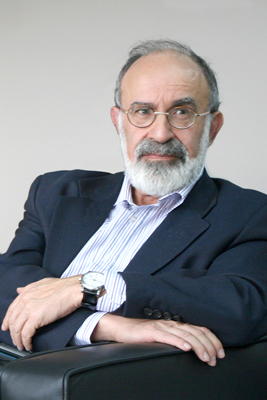New center for advanced studies in Costa Rica has deputy director of the IEA in its board
 |
|---|
|
Professor Guilherme Ary Plonski took office as a member of the institution's board |
The promotion of high-level interdisciplinary research advances in Latin America with the creation of the Espacio Universitario de Estudios Avanzados at the University of Costa Rica. The institution held commemorative seminars between September 5 and 7. Professor Guilherme Ary Plonski, deputy director of the IEA-USP, took office as a member of the institution's board.
Plonski gave the lecture 'Advanced studies: an international perspective', in which he showed a bit of the 30-year history of the IEA and the context for the creation of the network University-Based Institutes for Advanced Study (UBIAS). Formed in 2010 by advanced research institutes based in universities all around the world, the network discusses the production of knowledge and conducts joint scientific activities with the presence of prominent researchers.
"I see this invitation as a way to bring to the University of Costa Rica the lessons of a little more experienced institute, as there are few of its kind in Latin America. The concept of a center of advanced studies with interdisciplinary research characteristics in which students, professors and researchers feel comfortable to dare border issues is something important for Latin America to become increasingly included in the map of the international networks of advanced studies," said the deputy director.
Plonski points out that the UBIAS network has a large concentration of institutes in Europe, is gaining visibility in Asia and showing some growth in Africa. The United States have different mechanisms of fostering border research, he says. "With this, I realize that we are institutionally responsible for stimulating this model in which we believe, in order to reproduce it with its own characteristics in Latin America, since we are brothers and can assist with 30 years of experience of the IEA-USP."
The Espacio Universitario de Estudios Avanzados began to be formatted about a year ago. The new center has academic proposals similar to other institutes of the kind. But it will not operate independently, since it is linked to the dean of research at the University of Costa Rica.
On the other hand, due to the structure of research financing in Costa Rica, the center shall be free to launch tenders and calls for research and collaboration, unlike what happens in Brazil, where notices and processes for research funding are launched by agencies of development.
